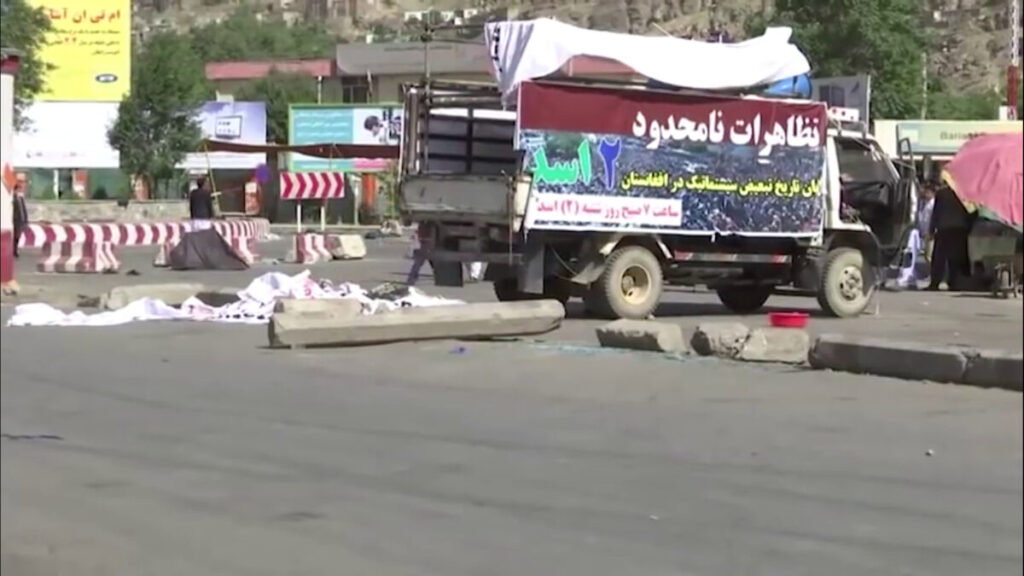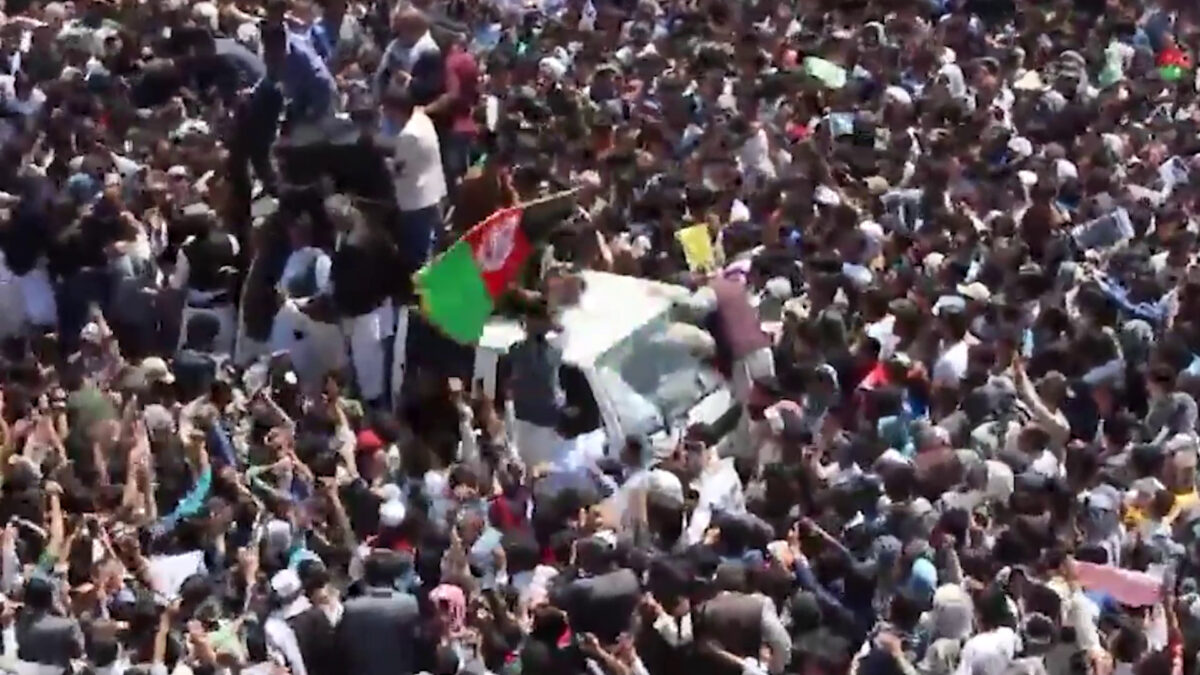Today, July 24, marks the 7th anniversary of the terrorist attack on the Enlightenment Movement, or Junbish-e-Roshnaee, protesters in Dehmzang area in the west of Kabul. The devastating car bomb attack, which struck a large protest claimed the lives of numerous civilians.
As the seven-year milestone is observed, some members of the Enlightenment Movement who participated in the protest lament that despite their sacrifices, the central provinces of Afghanistan remain deprived.
The Enlightenment Movement’s protest was initially formed seven years ago in response to the previous government’s decision to alter the route for importing Turkmenistan’s electricity from the Bamiyan line to the Salang line, which was perceived as discriminatory.
Recalling the horrors of the incident seven years ago, Asghar Soroush, a survivor of the attack who found himself amidst the debris and blood, recounted the legacy of that fateful day that continues to reverberate today and tomorrow.
“The participants demanded justice, equality, brotherhood, and the rejection of discrimination and inequality when we took to the streets. But they were met with violence and oppression from both government and non-governmental entities driven by ignorance and discrimination,” Soroush stated.

Ahad Faqiri, another member of the movement, noted that the protests redefined the path to justice, emphasizing that civil movements and litigation can be instrumental in seeking justice without resorting to violence, guns, or bullets.
Behnoud Behnoud, a protester from the Enlightenment Movement, attributed the lack of justice despite paying a high human cost to two factors: the racist views of former president Ashraf Ghani’s government and the actions of certain leaders within the movement.
Following the reactions to the attack, Mohammad Mohaqeq, an Afghanistan politician in exile, took to social media to highlight the incident as part of the ongoing violence against justice-seeking people.
“The Dahmzang incident on the second day of Asad [July 24] witnessed hundreds of students and professors bloodied during a civil movement in Kabul, perpetrated by the enemies of justice and brotherhood. It serves as a stark reminder of the series of violence against our justice-seeking people, who have been mercilessly targeted in mosques, schools, and civil gatherings,” Mohaqeq expressed.

An important objective of the Enlightenment Movement was to address the deprivation faced by the central provinces. The people of these regions raised their voices for justice amid explosions and gunpowder smoke.
“We are at such a disadvantage that, unfortunately, even after twenty years of the Republic’s operation, there are still no schools for boys and girls to attend, and there are no teachers,” lamented Fariba Hashemi, a resident of Bamiyan.
According to figures provided by the previous government, the attack resulted in the death of at least 80 people and left 231 others injured. Daesh claimed responsibility for the heinous act.




